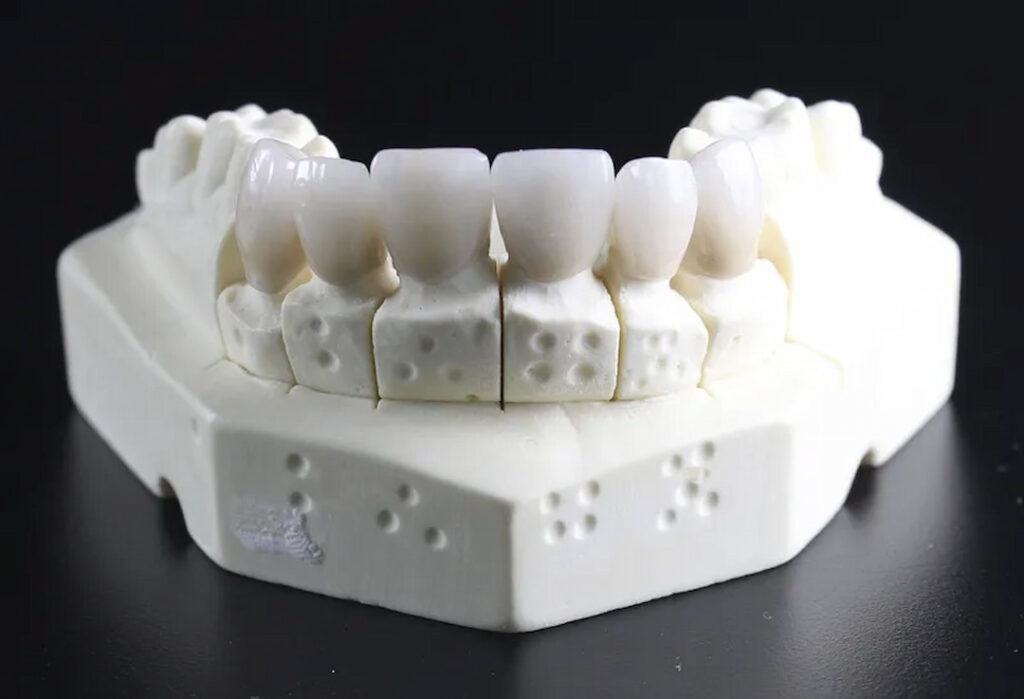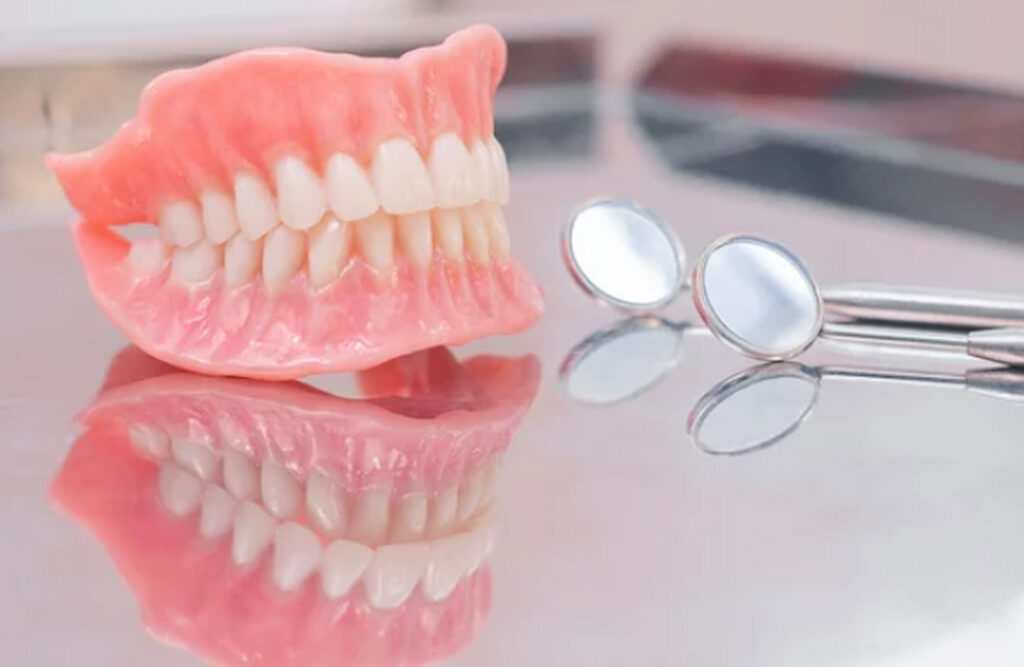
There are few things worse than having problems with your teeth. Not only can oral problems lead to issues with chewing swallowing, but it can also hurt your appearance, your confidence, and a whole lot more.
The truth is that losing teeth can actually lead to many other problems too. When some of your teeth fall out, it can create an issue with others that will cause teeth to drift and misalign. This will lead to jaw stress, pain, and more tooth loss.
There are many reasons why people may lose their teeth. Some people have poor oral health after years of not taking care of themselves. Others have diseases that are out of their controls. Others still lose their teeth because it’s just part of the aging process and, frankly, it sometimes happens.
No matter the reason for tooth loss, it needs to be addressed as soon as possible. No one wants to walk around with missing teeth or a mouth and gums and jaw that hurts and feels inflamed and uncomfortable. Plus, no one wants more teeth problems down the line. That’s why it’s so important that a trained dental team tackles the problem of tooth loss immediately.
One of the best solutions for teeth loss are dental implants. With dental implants, a client’s mouth will soon be looking 100% normal again, better than it has in years. However, dental implants aren’t for everyone. For some, they are too expensive. For others, they just aren’t an option due to pre-existing medical conditions. But if you can’t have dental implants, you’re still in luck.
Nowadays, there are plenty of dental implant alternatives that your dentist can lay out for you. That means that your mouth can still look completely healthy and strong and natural even without dental implants.
But what are the most popular dental implant alternatives and which are the best and most promising for modern dental patients?

Dental Bridges
There are many dentists throughout the world who specialize in dental bridges and recommend them over implants for many patients. But what exactly is a dental bridge and why should it be appealing to those searching for implant alternatives?
A dental bridge is fixed into your mouth and totally secure, meaning they won’t slip out or grow loose over time. They also won’t drift out of position, which is ideal for practically anyone with oral health issues.
This treatment employs two crowns on both sides of a gap or space in the mouth. When installed, dental bridges create the look of an implant without the issues that often come with them.
No Surgery Needed
Unlike implants, no dental surgery is needed for a dental bridge, which is a major plus for patients. That means that they can come into their dentist’s office in the morning and have the bridge prepared, installed, and looking great only a few hours later.
Less Expensive
Dental implants are secure and long-lasting – they can even last a lifetime – but they sure can get expensive. However, that’s not the case with dental bridges, which are far less expensive than implants. This bottom line is perhaps one of the most attractive for patients and this is why bridges have become more and more popular over the years.
Issues With Bridges
However, there are some drawbacks to dental bridges. For one, they don’t last a lifetime like implants. You may have to replace them after a few years, especially if your oral health issues continue.
Additionally, a dental bridge can be jostled loose if there is a strong impact against your mouth. Therefore, those who like to be physical or play sports might not choose a dental bridge for fear of having it knocked loose, chipped, or broken.

Root Canal
A root canal can become synonymous with something painful and exhausting but that actually isn’t true anymore. There may have been a time when root canals were more of a dreadful process but advances in medical science and oral health have made root canals much easier for the patient and for the dental team.
A root canal is ideal for someone who has infections in their mouth and gums and jaw. A root canal can go right in and clean out the tooth or teeth and stabilize and heal the part of the mouth that is plagued with problems.
This approach to oral health is usually employed when the decay inside a tooth can be taken out and then replace with fillings instead of implants. For that reason alone, the news of a root canal is good news because it means you will get to keep your teeth.
Following the removal of infected pulp inside of a tooth, a filling will then be installed instead. After that, a dental crown is then placed on the tooth – this will prevent more decay from reappearing or perhaps another infection springing forth.
But what about pain or discomfort? There is actually very little when it comes to a modern root canal. You shouldn’t rely on old tropes and stereotypes about root canals. With modern dentistry and medicine, a patient won’t be feeling much pain after receiving a root canal. Instead, they will just have teeth that look great – all without a dental implant!
Gum Disease Care
Gum disease is very, very serious and should never be ignored. Many people don’t even know when they have gum disease, but some of the most common symptoms include:
- Puffy and swollen gums
- Bleeding gums
- Pus between teeth and gums
- Tender gums
- Bright, red and red or purplish gums
- Spitting blood after brushing or flossing
Those are just some of the telltale signs of having gum disease. Of course, the worst side effect of having gum disease is experiencing teeth so loose that they may actually fall out.
Therefore, if you have lost teeth because of gum disease, a proper gum disease treatment might be advised over dental implants. This is because many treatments associated with gum disease can prevent more teeth from falling out. Your dentist may decide that perhaps a gum disease treatment plan is better than having dental implants installed.

Dentures
You have surely heard of dentures before. In fact, you may even know someone who has some dentures installed. There are good reasons for dentures too: they look natural, they are comfortable in the mouth, plus they are removable so you can take them out when you need to clean them.
This is why so many dentists might recommend that a patient have dentures instead of dental implants. They are easier to tend to, they look wonderful, and they are often less expensive too.
There are actually multiple types of dentures to choose from, meaning that you have a few alternatives laid out for you if you want them installed.
- Partial: Partial dentures are perfect if you want to replace one or multiple teeth that are missing in your upper or your lower jawline. They are created with gum-colored, authentic-looking bases that will keep the replacement teeth in line by attaching to other, strong, natural teeth in your mouth.
- Full: Full dentures are perfect for dental patients who have lost all of their teeth. Obviously, they are reserved for people who have more serious health issues associated with their mouths. What keeps full dentures in place? This is done by your dentist forming a seal in the roof of your mouth and your gums. Meanwhile, lower dentures are kept in place with anchors in your jaw.
- Implant-Supported: Modern patients are able to now have implant-supported dentures instead. This is perfect for anyone who wants to have a strong bite and stability with their dentures. They are very functional, look realistic, and are able to perform just like real teeth do. But they aren’t for everyone because a patient will need to have a strong jaw bone and a healthier mouth to install implant-supported dentures.
With so many denture options available for patients, you can see why so many people choose them over expensive dental implants.

Resin-Bonded Bridges
These bridges are a lot like regular dental bridges mentioned before. However, there is one difference and it is a big one. These bridges are attached with resin instead of relying on the stability and security of real teeth already in the mouth.
The dental resin is put behind the teeth to hold the fake teeth in their places. The great thing about resin-bonded bridges is that the procedure to get them is easy, not invasive and is fairly fast too. Plus, it’s completely reversible so if a client wishes to change their resin-bonded bridge or have it removed entirely, it’s a simple process.
There ARE Alternatives to Dental Implants
Years ago, dental implants would be one of the only ways to solve the issues plaguing your mouth. However, that is no longer the case. You are not stuck with dental implants and nothing else instead. Modern dentistry has created quite a few choices that patients can make.
Speak with your dentist about which dental implant alternative is right for you. Which one will give you the best smile? Which one will be easiest? Which one will be the most gentle on your wallet? You have multiple choices!

